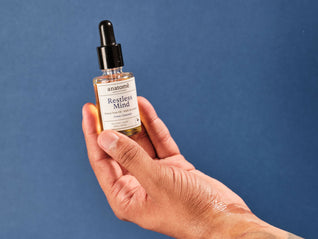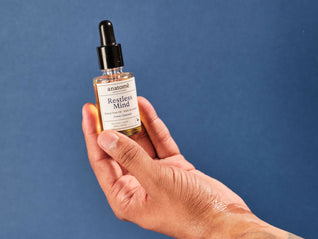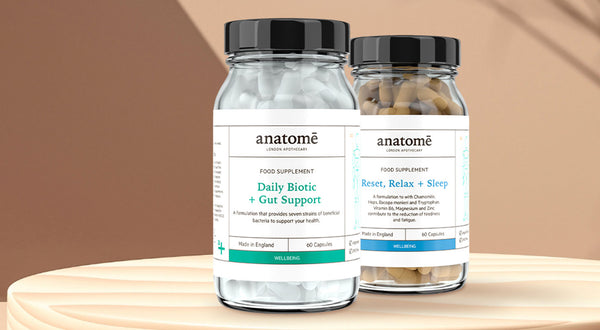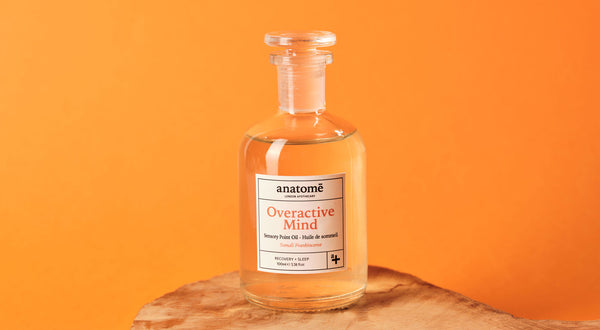We all have days where our brain just doesn’t seem to work well. The common phrase for it is brain fog, it can make us feel unlike ourselves, anxious, and it can have an effect on our work and our relationships. Maintaining clarity in our brains is critical to maintaining our emotional wellbeing and is crucial to how we interact with our work and other people in our lives.
What is brain fog?
Brain fog isn’t a medical condition, but is rather a symptom of other conditions that can interfere with your daily life. It’s described as mental fatigue that consists of “slow thinking, difficulty focusing, confusion, lack of concentration, forgetfulness, or a haziness in thought processes,” and more severe cases can cause headaches, problems with your vision, or even nausea (1). It is commonly associated with chronic fatigue syndrome, but that isn’t the only reason it can appear. Common causes for brain fog include chronic stress, like that associated with the coronavirus pandemic and lockdown, a chronic lack of sleep or poor quality of sleep, hormonal changes and diet (2,3,4,5).
How to fight brain fog
There are a number of things that you can do to help fight off brain fog and ensure that you maintain your mental clarity. Below we outline a few of these things and the science behind them so you can perform better in your daily life and battle mental fatigue.
Prioritise Sleep
Nights of poor sleep can make it difficult to think clearly during the day and perform your best throughout the day. Chronic nights of sleep deprivation can have long lasting effects on your cognitive function. One study found that “insufficient sleep leads to a general slowing of response speed and increased variability in performance, particularly for simple measures of alertness, attention and vigilance,” (6). Another study found that even one night of poor sleep can affect “logical reasoning, auditory vigilance and finding embedded figures,” (2). Essential oils are a great way to help you do this, since they have been proven to help you fall asleep better and faster (12). By prioritising your sleep you can rectify this kind of cognitive dysfunction and enhance your ability to perform.

Include fresh fruits, oily fish and nuts into your diet
Eating fresh fruits during the day will guarantee enough energy for your brain and the micronutrients support brain functioning, performance and concentration. Oily fish, like salmon, nuts and avocado are rich in omega oils, which make up part of the neurons. So by including a good daily amount of omega 3, 6 and 9, you support optimum cognitive function (7).
Use a daily dose of adaptogens
Adaptogens are plant extracts that are not commonly found in our diet that help the body cope with stress, that support the immune system and help to balance hormones (8). Lion’s Mane and Reishi mushrooms are proven to boost brain cells and cognitive performance (9). One study found that the use of Lion’s Mane mushrooms helped to regenerate nerves in the brain in rats (10). While another study found that it is “effective in improving mild cognitive impairment,” (11). Including these adaptogens into your diet through supplementation is a proven way to reduce brain fog and increase cognitive function, whilst also helping to preserve it over time.

Exercise regularly
Exercising regularly helps the brain to balance out the levels of serotonin and adrenaline, necessary for the body to create alertness, energy and motivation. It will also ease stress and support better sleep. “Fitness spares age-related loss of brain tissue during aging, and enhances functional aspects of higher order regions involved in the control of cognition,”(12). Exercise causes the release of helpful chemical messengers called cytokines as well as chemicals that are responsible for elation called endorphins. These chemicals rejuvenate the brain (12).
Brain fog and its resulting symptoms can be frustrating and hinder your life, but you don’t have to live with it, these recommendations will help you to keep your brain healthy and sharp. If you need more advice, try reaching out to one of our nutritionists.
References:
- https://www.ncbi.nlm.nih.gov/pmc/articles/PMC3617392/
- https://joe.bioscientifica.com/view/journals/joe/226/2/T67.xml
- https://www.sciencedirect.com/science/article/abs/pii/S030645221300732X
- https://www.sciencedirect.com/science/article/pii/B9780444537027000075
- https://www.sciencedirect.com/science/article/pii/S2352396416301438
- https://www.sciencedirect.com/science/article/abs/pii/S0944711318305439
- http://atlaschiropractichealthcenter.com/blog/wp-content/uploads/2015/06/Mushrooms-LE.pdf
- http://www.dl.begellhouse.com/journals/708ae68d64b17c52,03ea8c440cfbb276,23c2fd3840f4e0c9.html
- https://www.liebertpub.com/doi/abs/10.1089/acm.2013.0311



































